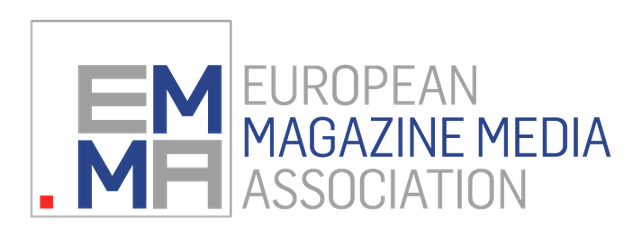Representatives of Europe’s media sector launch call for action to improve press freedom
Today at the European Media Freedom Conference 2016 Max von Abendroth, Executive Director of the European Magazine Media Association, together with Jane Whyatt, Project Manager at the European Centre for Press and Media Freedom, launched a “Call for Action” from Europe’s media sector to improve press freedom across the continent.
“The factors that undermine free speech are complex,” said Jane Whyatt at the event, which is organized by ECPMF and has brought press freedom advocates to Leipzig over the next two days to discuss these topics in more depth. Whyatt continued, saying “changing government priorities, anti-terror laws, defamation and hate speech laws, the intimidating actions of non-state actors, self-censorship are among the many threats we see in Europe today. These changes are happening gradually and it’s important to take notice of them before the situation worsens.”
Max von Abendroth agreed, adding that it “is high time to refocus the press freedom debate at EU level. This call for action acknowledges the restrictions on press freedom that are creeping into our lives and puts forward suggestions on how to have a more inclusive approach in order to structure the prioritise the debate in Brussels.”
Press freedom in Europe has declined in recent years. According to the Reporters Without Borders’ 2016 World Press Freedom Index, press freedom in Europe has been steadily deteriorating in the last two years, with some countries, such as Poland and Hungary, suffering from significant declines. As Christophe Deloire, Secretary General of Reporters Without Borders, writes in the report, “the continent that respects media freedom most seems to be on a downhills course and if nothing is done to maintain the pluralism of press on our continent we will see a progressive erosion of the ‘European Model’.”
The report launched today, titled “Securing Press Freedom Across Europe: Europe’s Media Sector Calls for Action” pinpoints some of the main causes of this decline and maps a way forward for policymakers and other stakeholders when it comes to protecting and maintaining press freedom across the continent.
“Freedom of expression and information is one of the most basic rights of the EU,” said Martin Schulz, President of the European Parliament during the opening address at today’s conference. Speaking via a video address, Schulz continued, saying that “press freedom is a precondition for the preservation of all other political liberties… [and] the European Parliament is highly committed to scrutinizing and improving legislation regarding all aspects of media freedom.”
The “Call for Action” is a result of the (R)EVOLUTION OF EUROPE’S PRESS conference, which took place in Wroclaw, Poland on 1 July. This earlier conference gathered approximately 100 journalists, publishers, politicians, tech experts and academics from across Europe for a day of keynote addresses, panel discussions and workshop sessions that delved deeply into how national and European policies, as well as technological innovation, impacts press freedom. This issue was also addressed in a session of the Future Media Lounge, which was run by the Future Media Lab., EMMA’s think tank. The session took place in the European Parliament at the end of September.
More information about the (R)EVOLUTION OF EUROPE’S PRESS conference, including video summaries, the call for action and blog posts, can be found at www.revolutionpress.eu.
For further information contact:
Karin Fleming
Communications Manager, EMMA
karin.fleming@magazinemedia.eu
+32 2 536 06 07
The European Magazine Media Association, is the unique and complete representation of Europe’s magazine media, which is today enjoyed by millions of consumers on various platforms, encompassing both paper and digital formats.
www.magazinemedia.euThe European Newspaper Publishers’ Association (ENPA) is the largest representative body of newspaper publishers across Europe. ENPA advocates for 14 national associations across 14 European countries, and is a principal interlocutor to the EU institutions and a key driver of media policy debates in the European Union.
www.enpa.eu